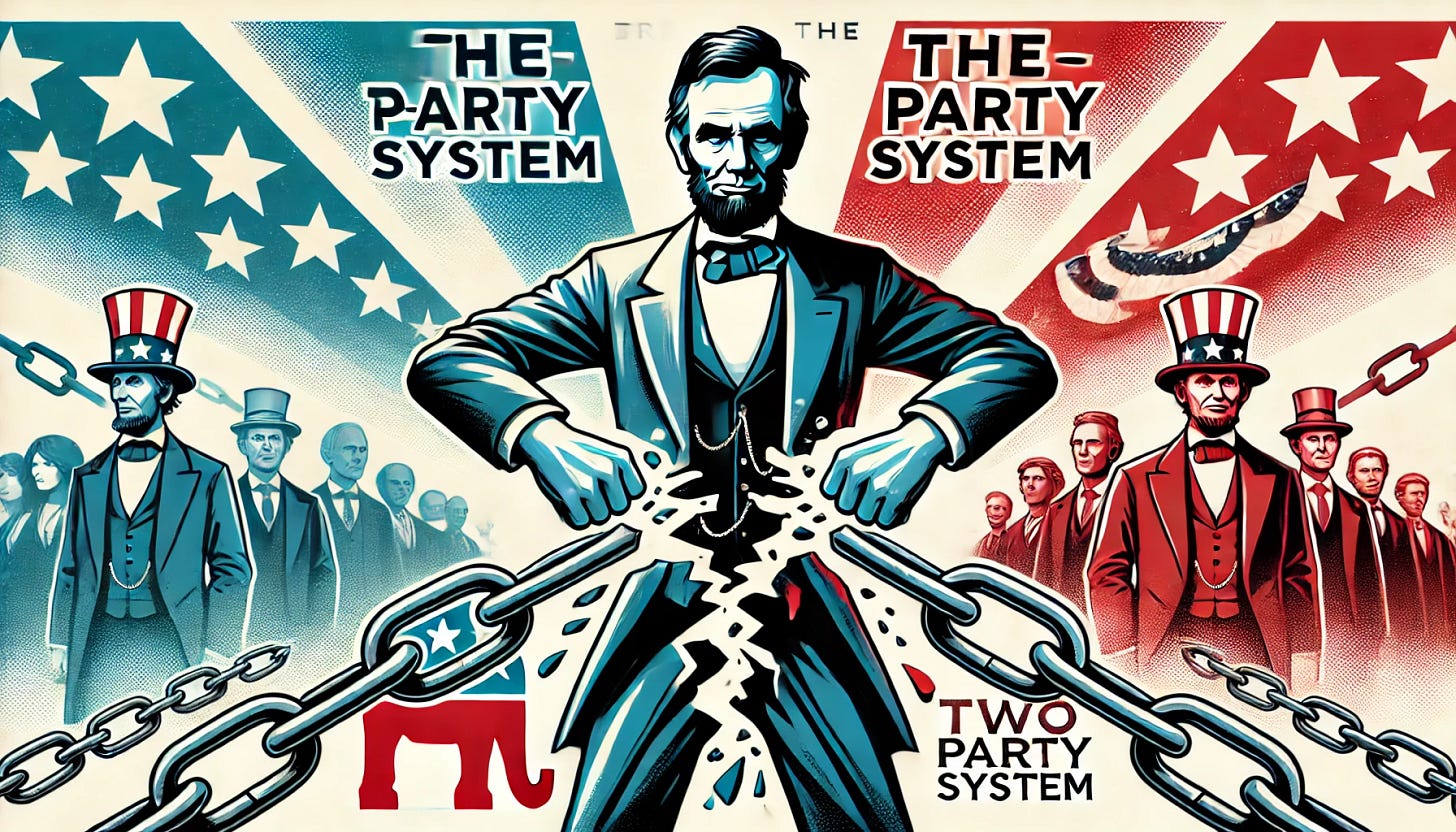RFK Jr. is Following in Abraham Lincoln's Footsteps to Break the Two-Party System
As the first Republican candidate, Lincoln’s election shattered the political status quo, leading to one of the most significant social changes in U.S. history: the abolition of slavery.
The American political landscape is dominated by the two-party system, which many see as an unbreakable norm. But history tells us otherwise. One of America's most iconic figures, Abraham Lincoln, defied this very norm. Running as the first Republican candidate, Lincoln’s election shattered the political status quo, leading to one of the most significant social changes in U.S. history: the abolition of slavery.
In 1860, the United States was teetering on the edge of division. The Whig Party, one of the two dominant parties at the time, failed to take a decisive stand against the expansion of slavery. This indecisiveness paved the way for the Republican Party, a new political force committed to opposing slavery's expansion. Abraham Lincoln, a former Whig, emerged as the Republican candidate, embodying the values and convictions the Whigs lacked.
Lincoln’s candidacy was considered a long shot. The entrenched two-party system seemed insurmountable, and the odds were stacked against him. Yet, Lincoln's message resonated with a significant portion of the electorate. His moral clarity on the issue of slavery, coupled with his vision for a united nation, galvanized a broad coalition of voters dissatisfied with the existing political choices.
Keep reading with a 7-day free trial
Subscribe to Jeff Dornik Unfiltered to keep reading this post and get 7 days of free access to the full post archives.



